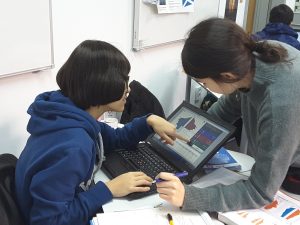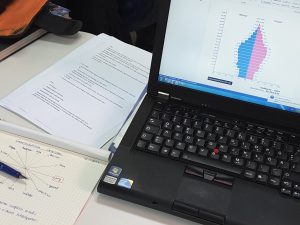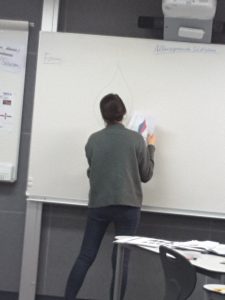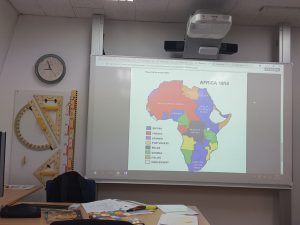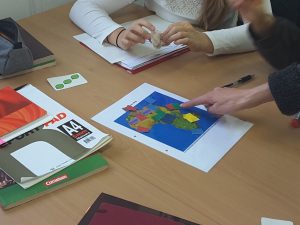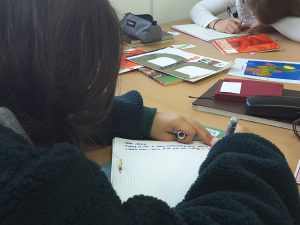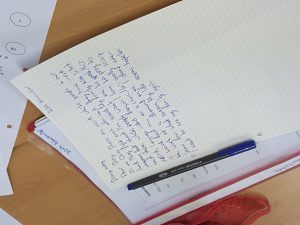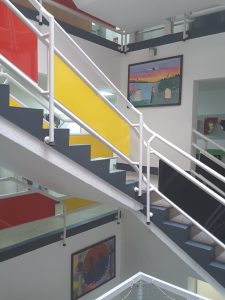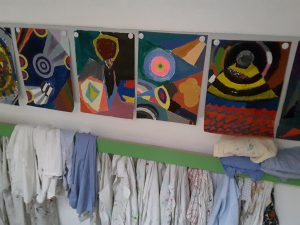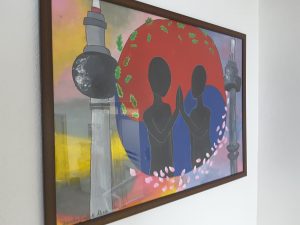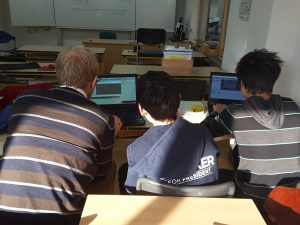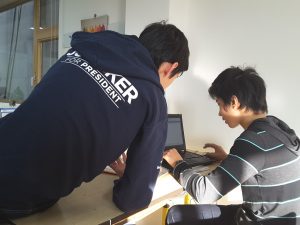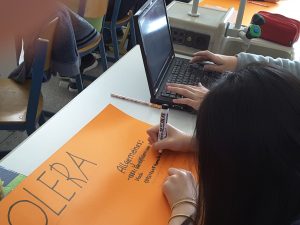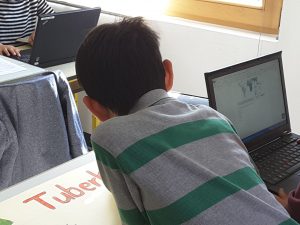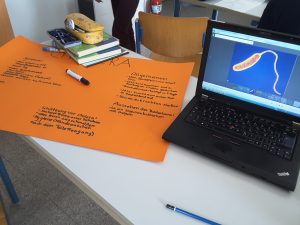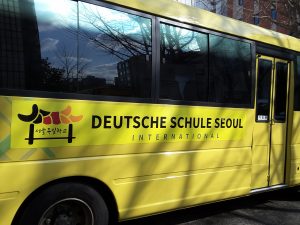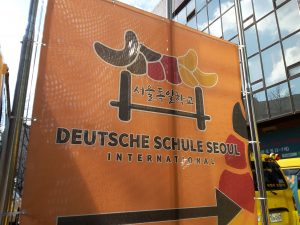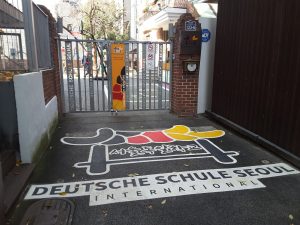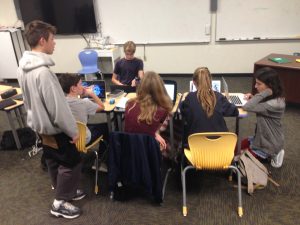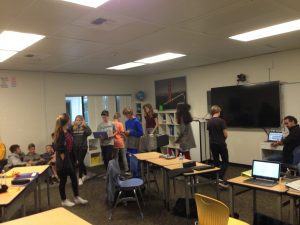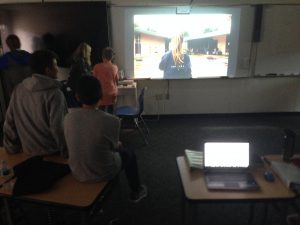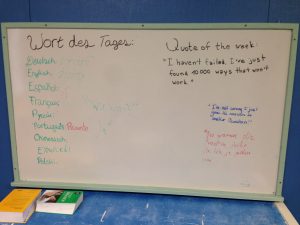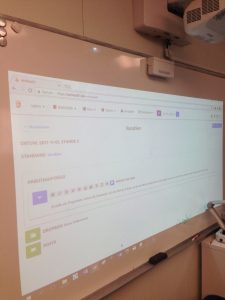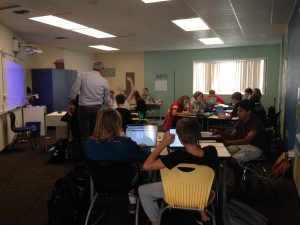16. November 2017
Today in politics-class students from year 11 talk about societal opposites. The theme is ‘Young & old’. First, the students and their teacher talk about the German population pyramid. They then research the situation for South Korea. “How does the situation look like more than 10.00 km away from Germany?”, the teacher asks.
The teenagers do their research using German and largely Korean language websites. “What’s the Korean word for ‘Alterspyramide’ [population pyramid]?” is only one of the questions they need to clarify.
South Korea’s population pyramid looks like a pear, a girl contends, and she roughly sketches it on the Duraboard in front of the class. The class discusses possible reasons for this. Later, the teacher explains to me that by using such ‘German-South Korean’ comparisons he aims at engaging the pupils with examples from their own life world.
